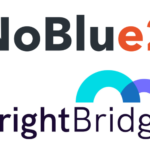NetSuite is an exceptional ERP system that offers comprehensive support across your entire company.
While its core functionality lies in finance and accounting, NetSuite goes beyond that, effectively managing your operational needs – whether you’re a manufacturer, distributor or professional services business – and can improve how your business manages its sales, marketing, customer relationships and HR.
But you probably run other software too. Perhaps you employ some specialist solutions. Or you have previously invested in best-of-breed applications that you don’t want to replace.
To leverage the full potential of all your systems so that you can maximise business success, it’s crucial to seamlessly integrate NetSuite with your other software.
Here are some best practices for integrating NetSuite effectively in your company.
Employ Good Project Management Practices
Integrating ERP software does not happen overnight. It can be complicated and take longer than you might think. So, it’s important to employ robust project management.
As a starting point, you should ensure that you are ready for an ERP project. Having established that, you should then clearly define the goals of the integration, so you can then put in place a well-defined integration strategy and architecture.
Best practices demand that you set realistic timelines and clear milestones, so that you can keep on top of your project deadlines and benchmark your progress.
Recognise the Importance of Data Migration
Your plan should include comprehensive details about the data migration processes.
This part of the integration process is often undervalued, so is not adequately planned for. But your data is incredibly valuable. It effectively *is* your business. So, you must set aside sufficient time and resources for its careful migration.
To manage this well, you need to audit and map your data, so that it can be assessed for consistency across systems. This allows you to clean and edit it, as well as to make decisions about what data will be kept or discarded. Analysing your data also enables you to set formatting standards for the information you will use – across both your new NetSuite ERP system and your other applications.
You will also want to implement robust security measures to protect your data during the integration and then go on to validate and test it to ensure that the transfer has been accurate and reliable.
Integrate All Your Systems
You get the most out of your business systems when they all work in harmony. So, it’s best if all your software systems link in together and can communicate seamlessly.
This eliminates the rekeying of information and means there is less possibility of errors. It ensures that your staff don’t waste time opening separate systems to cross-reference information, nor do they need to port data between applications.
With your ERP at the centre of all your infrastructure, and consistent data fields across applications, you have just a single database of information. There are no data silos, so your data is always up to date and complete across all systems.
Errors are much reduced and there are no delays when working with data. Information flows seamlessly and your staff need not wait for manual calculations or to receive data from other departments before they can use it.
It’s key that you integrate as much of your software as you can. This includes, for example, all your commerce solutions. This would include your customer-facing ecommerce website, plus maybe a B2B website – as well as any third-party marketplaces you sell through and logistics providers and carrier platforms.
You should also integrate your ERP system with any third-party marketing and customer relationship management (CRM) solutions and marketing automation platforms, like HubSpot or Salesforce.
Even where you believe your systems might have to remain separate from each other, still consider if they can be integrated. For example, Microsoft Outlook is popular in many companies and is typically run as a near standalone application, mainly for email and calendar uses. But it can be easily integrated with an ERP like NetSuite, which will extend and enhance its functionality.
Manage Your Integrations Through One Partner
It’s important to make sure that your NetSuite ERP solution and other software all works smoothly together. That’s where a specialist NetSuite partner comes in. They know NetSuite inside out so can ensure everything fits together well. They’ll manage the integration process, making sure there are no issues between different software systems and that data flows seamlessly.
Having just one partner makes things easier for you. Instead of dealing with multiple suppliers, you only need to communicate with one. This leads to better coordination and sharing of information. Plus, if any problems arise that affect multiple systems, your partner can handle it all and talk to the individual software vendors if needed. And because you only need to rely on one contact, the integration process is faster and costs less.
Your NetSuite partner is also great for post-implementation support. They can provide training for your team on the integrated system and any customisations they’ve made. This maximises employee learning and improves user adoption. Plus, you can establish an ongoing relationship with your partner for continued support and maintenance, and with only one support contract, you save money.
Prioritise Native Apps
When it comes to adding software or enhancing it, you should check to see if there is a native NetSuite app that does what you want. You may even be able to replace an existing piece of third-party software with a native app.
Native apps should be prioritised over third-party software as they seamlessly integrate with the core features of the NetSuite platform. Being specifically developed for NetSuite, they work in harmony with it and optimise its performance and extend its capabilities.
Using a native app ensures compatibility, responsiveness and a consistent user experience. These apps seamlessly blend with the platform, incorporating its design principles and intuitive interface, ensuring the user experience is not disjointed.
Moreover, native apps are trustworthy and approved by NetSuite, providing peace of mind regarding security and compliance.
By integrating a native app within NetSuite, you add additional functionality directly to the platform, eliminating the need to switch screens or open separate applications. This streamlines your workflow, enhances user experience and improves data consistency and integrity.
Integrate Your Systems at the Same Time
It is best practice to integrate all your systems at once, as part of a single project when you deploy NetSuite for the first time.
This provides a fully integrated, cross-company solution that drives your business. As you grow, you can scale NetSuite up, rather than adding new systems and trying to integrate them into your current business processes.
In this way, your workflows remain nicely streamlined, keeping efficiency levels high. Data flows quickly and smoothly across the company, preventing the risk of error and ensuring better data compatibility, minimising delays and information that is out of date.
By integrating everything at once, you reduce costs and maximise efficiency, staff productivity and profit earlier in the process.
While it’s possible to retrospectively integrate systems that you have already deployed, it is harder and may cost you more in the long run. You may have problems with compatibility or data consistency, for example, that were not considered at the beginning of the ERP implementation.
The advantage of NetSuite is that it is scalable and extensible. It is simple to add users, deploy additional modules or add new apps to extend how NetSuite works for your needs as you grow.
Elevate Your Business with NetSuite Integration
Maximise your business potential with a seamless integration of NetSuite with your other business software. Partner with NoBlue to ensure a seamless integration of third-party software and approved native apps.
We follow best integration practices and will integrate all your systems to maximise efficiency and data consistency. Contact us today to unlock the full power of NetSuite for your business.










